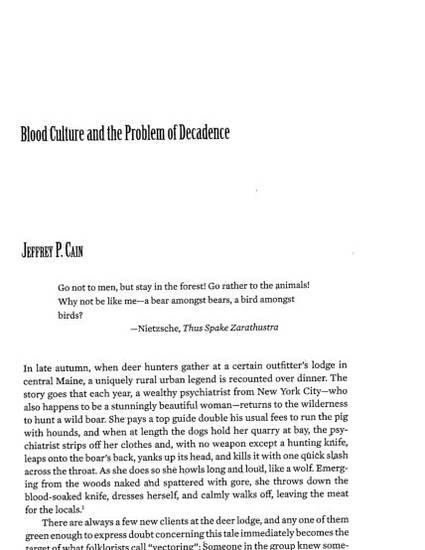
This paper examines the commodification of hunting practices via the deterritorializing function of capitalism described by Deleuze and Guattari. It also studies counter trends-- predicted by or consistent with Deleuzean theory--that indicate a subtending authenticity displayed by certain hunting practices apparently resistant to commercial exploitation. "Blood culture" is my term for inauthentic hunting activity--a distinction drawn directly by Deleuze in his televised interviews with Claire Parnet. Aspects of "becoming-animal" and other transversal and cross-disciplinary flows of thought are also of course in play. As in some of my former work, I again argue for a Deleuzean cultural mechanics of the Actual/Virtual, a rigorous system that informs the "hunting body" as a special case of the Body without Organs. In order to track and kill game the authentic hunter must be open to multiplicity in the form of becoming animal; she or he must become less totalized, geometric, stratified, closed, and centripetal; in short, less civilized. It is important to note that the mechanics of culture I am postulating (here and elsewhere) does not derive from morality, psychoanalysis, textualism, or organicism. It is, rather, based on Deleuze and Deleuze and Guattari's concepts of the Actual, the Virtual, the Plane of the Real and the Plane of Immanence, De-and re-territorializations of various kinds, the BwO, flows, stratifications, segmentations, inorganic potentialities, percepts and affects, and numerous other conceptual artifacts culled from their works and other disciplines.

ISBN 9781572336704